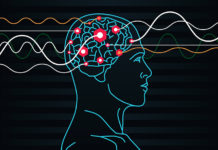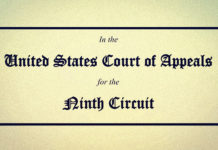Neurofeedback is Not For Everyone: The Dangers of Neurology
One thing I noticed, from the moment that I stepped out of my psychiatrist’s office, was how strangely blank and yet clear my mind was. I felt surprisingly calm and relaxed, and I decided to go back for another treatment the next week. What I couldn’t have known then was that after that next “treatment,” life would be completely destroyed for me.
Questioning the Integrity of Psychiatry
The Royal Australian and New Zealand College of Psychiatrists claimed that “the prescription of antidepressant or antipsychotic medications is something that a psychiatrist only ever does in partnership with the patient and after due consideration of the risks and benefits.” How could a responsible professional body make an assertion so patently wrong?
The Next Deadly Epidemic: Adult ADHD and Stimulants?
I refuse to be one of the doctors that contribute to the next deadly epidemic. I see too many similarities between stimulants and opiates — they’re both strongly addictive, stimulate our pleasure centers, and have long-term dangerous mental and physical effects. And they both “work” in the short term without actually fixing anything.
UN Meeting on Human Rights in Mental Health: A Response
On May 14 and 15, the UN Office of the High Commissioner for Human Rights held a meeting on human rights in mental health. The event represented tensions in the United Nations between the promotion of mental health and the promotion of the human rights of people with psychosocial disabilities under the Convention on the Rights of Persons with Disabilities.
ADHD: Disempowerment By Diagnosis
Giving a diagnosis of ADHD can profoundly disempower students and lead to what psychologists call “learned helplessness.” Isn’t it time for those of us in education to reclaim our profession? Who are the teaching and learning experts? Doctors? Drug companies? We are! And if we don’t stand up—for our students—against disempowering diagnoses and harmful drugs, who will?
Distinguishing Dissociative Disorders from Psychotic Disorders: Compounding Alienation
If a person recognizes the “alien” parts of themselves as being parts of themselves, they are likely to be seen as having PTSD or a dissociative disorder. If they see the “alien” parts of themselves as being literally aliens, or demons, they will likely be diagnosed as psychotic. But these experiences are really on a spectrum.
The Long-term Consequences of Antidepressant Use: An Interview with Michael Hengartner
Researchers at the University of Zurich, led by Michael Hengartner, recently reported that antidepressant use was associated with worse outcomes in patients followed over 30 years. Here Hengartner provides more information about the study methodology and their findings.
The Myth of Mental Wellness: Can We Really Improve our “Mental Health”?
"Mental Illness" is nothing but a label for coping styles that disrupt society. Hence its flip side "mental wellness" is just a label for coping styles that contribute to society. So "happiness businesses" can't really "heal" people — they merely convert their coping tools to socially productive ones.
Three Antipsychiatry Scholarships: The Revolution Continues
A quiet revolution has just happened—a formidable piece of counter-hegemony. We now have antipsychiatry scholarships ensconced at all three universities in a major international city. And with this, antipsychiatry has made sizeable inroads into academia, laying down infrastructure and altering the discourse.
Molecular Fingerprints? On the Science and Ethics of Transcriptomic Research
Who were these people whose brains were used in Gandal et al.’s research? How did they live and die? How did the researchers gain permission to open their skulls and extract brain tissue for research purposes? For information on the samples, you have to take a look at every single study. Which is what I did.
20-year Outcomes for First-episode Psychosis: Impact of Neuroleptic Drug Discontinuation
The authors conclude that the risk of treatment failure or relapse after discontinuation of antipsychotics does not decrease during the first eight years of illness, and that long-term antipsychotic treatment is associated with increased survival. This is a sobering finding and the paper warrants careful review.
Usage of Depression Pills Almost Halved Among Children in Denmark
After a number of years with a steadily increasing sales curve, the number of children and adolescents in treatment with depression pills decreased by 41% in Denmark. Despite this welcome development, pharmaceutical companies and psychiatry professors continue to deceive the population and deny the facts about these drugs.
The Interim Report on the Independent Review of the Mental Health Act: A Response
The report has succeeded in being supremely ambitious in its breadth, whilst remaining disappointingly cautious in its goals. The emphasis is on smaller changes in the immediate future, and kicking more progressive reform into the long grass. It alludes to but does not enshrine a rights-based approach.
“The Power Threat Meaning Framework”: A New Perspective on Mental Distress
Many of us have drawn attention over the years to the problems and shortcomings of psychiatric "diagnoses." The Power Threat Meaning document draws together the various threads in this debate and blends them into a coherent, cogent, and highly readable account.
The Unsung Psychiatric Impact of Strep Throat
A sea change is needed in the evaluation of children with perceived psychological disturbances. Parents are told that their child has a fictitious biochemical imbalance in the brain while real medical disorders are overlooked. In our family's case, it was Pediatric Autoimmune Neuropsychiatric Disorder Associated with Strep (PANDAS).
How to Get So You’re Running the Psych Ward
Being in a psychiatric prison is about power, and it should be treated that way. There are a number of strategies for how to get through life in a psych ward. Over the course of a couple of extended admissions I ended up developing my own personal strategy, which one would simply call Unceasing Persistence.
Verne Troyer’s Passing: What’s Prejudice Got to Do With It?
Again and again after an incident like this occurs, the media bombard the public with calls to bring about greater awareness of "mental illness" and the importance of "treatment" that is generally described in a narrow way. There is little discussion about why the person may have been suffering in the first place.
How Should We Treat Depression in Pregnancy?
What depressed pregnant women need is compassionate care and accurate information that recognizes the potentially severe consequences of depression while making it clear that chemicals going into a baby throughout its development will likely have consequences for that development.
The Woeful Underfunding of Psychotherapy by Health Insurers
Psychotherapy reimbursement rates have been in decline for decades, even though insurance premiums have risen sharply. This is mystifying given that the vast majority of people prefer psychotherapy over medications, science shows it rivals the benefits of medications, and it saves insurance carriers money.
ECT Shock Treatment Class Action – Case Update April 2018
In March, 2018, the Court issued an Order denying class certification in the case filed against the manufacturers of ECT shock devices. Attorneys for the ECT victims strongly disagree with the Court's assessment, and have now petitioned the Ninth Circuit Court of Appeals for permission to appeal the ruling denying class certification.
On Being Mad in Public
Even as you are being shown amazing and mystical things and having all sorts of mysteries clarified in your mind, you are also being placed in a position where no one will pay any attention to what you have to say, or if they do, the results of that attention will be negative (such as being locked up). The mysterious and powerful journey you are on is almost invisible to other people.
“Psychiatric Meds Saved Your Life,” and Mine
It's not about whether it's right or wrong, true or false that psychiatric drugs save lives. It's about telling the stories that aren't being told. That's why psychiatric drugs saved my life after they destroyed my health and nearly killed me. They gave me something I care about and am passionate about writing about. They gave me a pathway to bring healing to others.
Metacognitive Training (MCT): A New Treatment Approach for Delusions
Since psychosis does not occur instantaneously and suddenly, but is often preceded by a gradual change in the appraisal of one’s cognitions and social environment, empowering metacognitive competence may act prophylactically to prevent or hinder a psychotic breakdown.
Your Pharmacist is Tattling On You!
A CVS pharmacy recently sent me a standardized form by fax with a dire warning about one of my patients. The form was called “MEDICATION NONADHERENCE THERAPY ADVISORY” and it said: “A review of your patient’s retail and mail prescription history indicates that the patient has not obtained his or her first refill.”
Book Review: The Other Mrs. Smith by Bonnie Burstow
In The Other Mrs. Smith, Dr. Burstow chose to use the fiction format, presumably because she felt it was the best way for readers to understand what it is like to experience electroshock and deal with the aftermath of massive memory loss. In this she succeeds spectacularly.

































